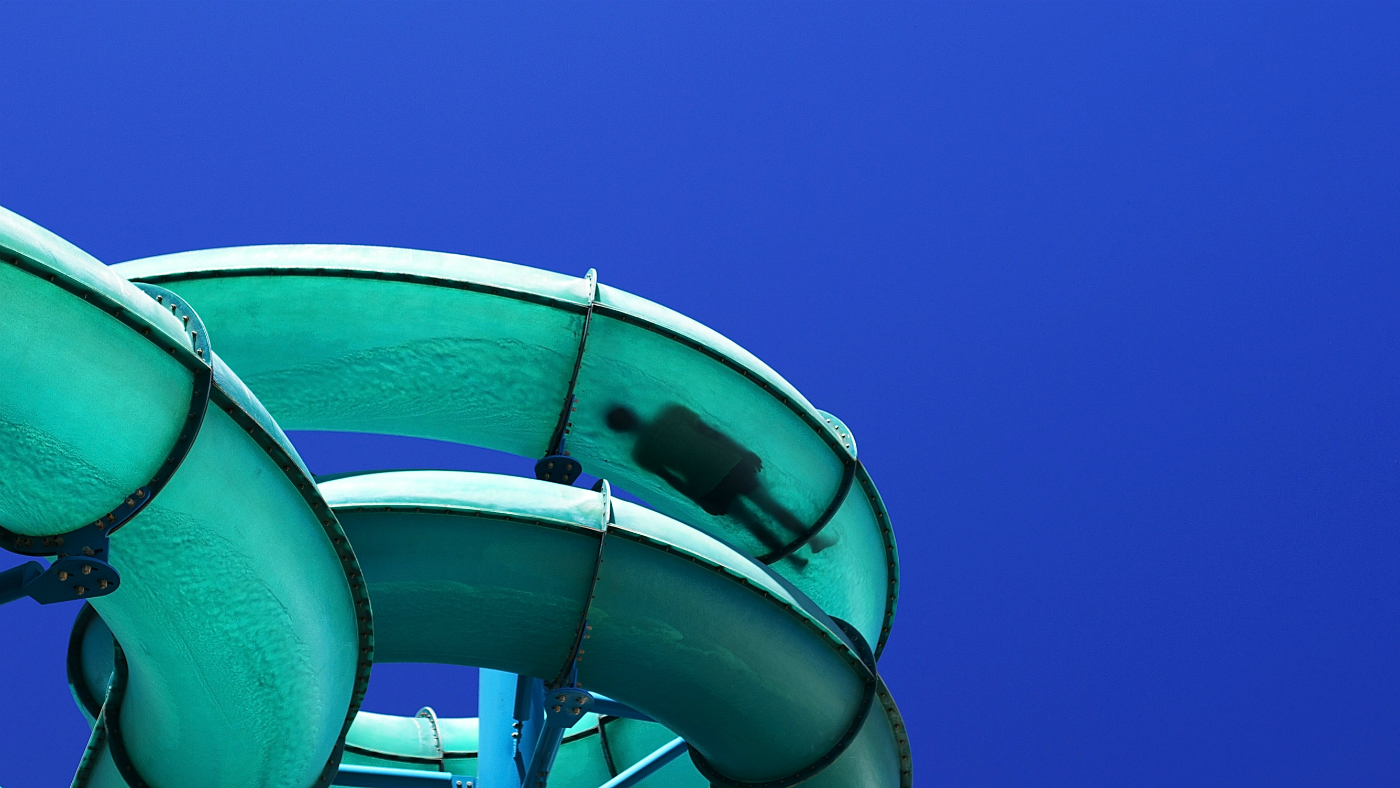Center Parcs accident: how safe are water rides?
Man and two children suffer injuries after Tropical Cyclone raft flips mid-ride

A free daily email with the biggest news stories of the day – and the best features from TheWeek.com
You are now subscribed
Your newsletter sign-up was successful
An investigation has been launched after two children were injured and a man was left with broken ribs in an incident on a water ride at Longleat Center Parcs.
According to reports, the man, his 12-year-old nephew and niece, 13, were hurt on the Tropical Cyclone ride on 19 August when their raft flipped over.
Center Parcs apologised but said it was “simply an unfortunate accident”. A spokesperson for the holiday firm told the BBC that a raft overturning was an “extremely rare” occurrence. More than 340,000 rafts have travelled safely down the course in the last six months and there have been 23 reports of rafts overturning on the Tropical Cyclone in that time, they said.
The Week
Escape your echo chamber. Get the facts behind the news, plus analysis from multiple perspectives.

Sign up for The Week's Free Newsletters
From our morning news briefing to a weekly Good News Newsletter, get the best of The Week delivered directly to your inbox.
From our morning news briefing to a weekly Good News Newsletter, get the best of The Week delivered directly to your inbox.
The man involved said he and his family had been on the ride “countless” times before, adding: “We went into thin air and that’s why we flipped. The thing that I really remember was the cracking sound of my ribs hitting the side of the flume.”
Wales Online reports that Center Parcs has insisted that the ride was fully certified, covered by a risk assessment and had control measures in place to mitigate risks.
Nevertheless, the incident has raised concerns over the safety of water rides, which have been the subject of scrutiny for decades following a number of high-profile accidents.
Data for UK parks are scarce, but US Consumer Product Safety Commission research from 2016 found that more than 4,200 people a year were “taken to emergency rooms to be treated for scrapes, concussions, broken limbs, spinal injuries and other such injuries suffered on public waterslides”, the Associated Press reports.
A free daily email with the biggest news stories of the day – and the best features from TheWeek.com
This number does not include other water park injuries or those who need lifeguard assistance without a hospital trip.
–––––––––––––––––––––––––––––––For a round-up of the most important stories from around the world - and a concise, refreshing and balanced take on the week’s news agenda - try The Week magazine. Get your first six issues free–––––––––––––––––––––––––––––––
AP also reports that there are considerable fears over risks present “even when most of the water is shallower than 3 feet” on rides such as wave pools. These include “people who aren’t good swimmers, especially young children, mixed with the unexpected hit of waves and falls that can lead to concussions or even drownings”.
According to The Sun, questions have also been raised multple times about the cleanliness of theme park water rides.
It reports that in 2004, tests carried out at log flume and river rapid rides at two theme parks in the UK “carried 20 times the safe amount of bacteria in water”, with bugs found including “those that caused skin and ear infections, cystitis, sickness and cramps”.
However, overall water rides appear to be safe, both at theme parks and water parks. According to CNN, the likelihood of suffering a serious injury that would lead to an overnight stay in hospital is one in 16 million.
“Based on the number of people that go to amusement parks each year, the relative number of injuries is, fortunately, small,” Gary Smith, president of the Child Injury Prevention Alliance, told the broadcaster. “But there’s still potential for serious injuries.”
-
 The environmental cost of GLP-1s
The environmental cost of GLP-1sThe explainer Producing the drugs is a dirty process
-
 Nuuk becomes ground zero for Greenland’s diplomatic straits
Nuuk becomes ground zero for Greenland’s diplomatic straitsIN THE SPOTLIGHT A flurry of new consular activity in Nuuk shows how important Greenland has become to Europeans’ anxiety about American imperialism
-
 ‘This is something that happens all too often’
‘This is something that happens all too often’Instant Opinion Opinion, comment and editorials of the day